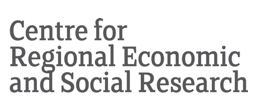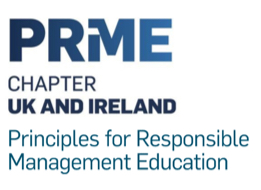- Conference rationale
- Thematic lines and conveners
- Conference organisers
- Conference committees
- Transdisciplinary Forum
- Conference registration
- Getting there and accommodation
- Abstract submission
- Paper and poster guidelines
- About Social Enterprise International
We invite scholars to explore synergies between different disciplines within social enterprise research and catalyze critical debate between different research communities on the state of the art. Specifically, we invite contributors to reassess the nature of and controversies surrounding definitions and conceptualisations of the field.
Social enterprises cross various boundaries, in terms of sectors (public, business, cooperatives, associations), resources (market, public procurement, grants, volunteering) and activity fields. Their social mission is usually linked to the activity field(s) in which they operate, ranging from more traditional fields such as access to social services and health and work integration to the emergence of innovative fields supported by platform cooperatives, eco-entrepreneurship, crowd-based social finance and radical civic action projects to bring about cultural change.
To what extent do government and civil society actors, social economy leaders and business practitioners work towards sustainable development? In this conference, there are opportunities to discover (or rediscover) the advancement of social and environmental aims, and rethink how models of social enterprise (including those discovered during the International Comparative Social Enterprise Models (ICSEM) project) contribute to sustainable development.
Taking a worldwide interdisciplinary perspective, this conference invites diverse scholarly communities to discuss and debate the challenges that arise from sustainable development. The conference will bring together research communities from all over the world studying different aspects of the third sector through the perspectives of social innovation, entrepreneurship and solidarity action, institutional logics, commons transition and other relevant frameworks.
To encourage academic debate across fields and disciplines, the conference will be structured along 10 main thematic lines to build up an international corpus of theoretical and empirical knowledge, pluralistic in disciplines and methodologies, around “SE” concepts (social enterprise, social entrepreneurship, social economy and solidarity economy). They are:
Line 1. Concepts and models of social enterprise, cooperative and voluntary action (SE)
What do we think social enterprise is, and what could it be? For the last 20 years, different scholars have sought to define ‘schools’ and ‘approaches’ to SE. How much does the controversy surrounding ‘hybrid’ and ‘pure’ forms of SE matter? What are the boundaries and intersections between social enterprise, voluntary action and co-operative development? What kind of boundary work occurs and for what ends?
- Conveners: Jo Barraket, Marie Bouchard, Jacques Defourny, Rob Macmillan.
Line 2. Resourcing social, cooperative and voluntary action
What impact does the changing landscape for funding, social finance and co-operative capital have on the field? Social enterprises have been creative in finding different streams and types of income alongside traditions sources of funding from state, charitable and private sources. What are the challenges associated with the management, development and recruitment of staff, volunteers, trustees and directors? How are resources organised, put to use and configured, and to what ends? What innovations in the field of social finance align with (or undermine) that value commitments of social, cooperative and voluntary organisations?
- Conveners: Giulio Ecchia, Yu-Yuan Kuan, Peter Wells, David Wren.
Line 3. Social innovation and entrepreneurship
Do different research communities studying the third sector frame social innovation and entrepreneurship in different ways? In the last few years, there has been a growing consensus that social innovation pertains to changes in power relations and democratic accountability in organisations and eco-systems of management and governance. However, this framing of the concept sits alongside studies that examine the utility of SE products and services, and the social outcomes they catalyse for individuals and groups. How does social innovation differ from technical innovation? How do they envisage the life course of a social innovation? How do they assess the value, potential and limitations of disruptive social innovations and entrepreneurship? How does the current interest in co-production and the collaborative economy change the way that we theorise social entrepreneurship and innovation?
- Conveners: Danijel Baturina, Chris Dayson, Lars Hulgård, Mary O’Shaughnessy.
Line 4. SE as a site for radical forms of democracy, participation and action
What role does SE have in providing sites for radical forms of democracy that challenge the capitalist system, market economies and political institutions? The impulse to engage in SE vary from region to region, nation to nation and continent to continent. How democratic are the different types of SEs and how do they compare to long-standing democratic practices in co-operative enterprises and voluntary organisations? How do they impact on equity, equality and inclusiveness? Can social innovations enfranchise people irrespective of gender, class, ethnicity and religion, and – if so – do they stimulate co-production that is sufficiently democratic to challenge established hierarchies?
- Conveners: Katherine Gibson, Kiri Langmead, Alex Nicholls, Sonja Novkovic.
Line 5. Multi-Level governance and eco-systems for SE and sustainable development
How do people participation in SE governance? SE exists in networked, multi-level and polycentric eco-systems of organisational and administrative governance. Scholars of SE have examined the complex multi-faceted relationships between members and their organisations, organisations and their eco-systems and the implications for sustainable development from different forms of governance. What rights and responsibilities can be expected from members of SEs? How are SE eco-systems governed formally and informally? What impact is sustainable development having on SE governance theory and practice?
- Conveners: Tracey Coule, Giulia Galera, Benjamin Huybrechts, Francesca Petrella.
Line 6. Public policy and legal frameworks for SE
How do different countries and regions develop policy and legal frameworks for SE? Increasingly, governments around the world are making explicit commitments about the involvement of SE in public policy development and implementation. This had led to the creation of legal frameworks that have the potential to both enable and constrain SE, creating opportunities and challenges for policy and practice. How effective have these been and for who? How have SE actors influenced policy and legal frameworks in different jurisdictional contexts?
- Conveners: Anna Ciepielewska-Kowalnik, Kate Cooney, Mihaela Lambru, Jules O’Dor.
Line 7. The commons and collaborative economy through SE
What contribution can commons property and a collaborative economy make to civic regeneration? The concepts of the ‘commons’ and ‘collaborative economy’ have been receiving increased attention from SE scholars in recent years. These emergent concepts link collective action and co-operative development within a social solidarity economy. This challenge to the individualised and ‘heroic’ reification of social entrepreneurship foregrounds the need for a deeper understanding of the role of civic and voluntary action, and group property, within the field of SE. How can collective and collaborative entrepreneurship be represented in the literature on SE? Should the boundaries of the commons be drawn, and what impact would this have on its relationship to SE?
- Conveners: Gabriela Avram, Taco Brandsen, Marthe Nyssens, Rory Ridley-Duff.
Line 8. Social solidarity and transformative movements
To what extent can solidaristic movements challenge neo-liberal hegemony? This track focuses on the relationship between social movements and activism, the role of SE in imagining solidaristic economies and societies, and the development of informal economies and organisational forms within radical grassroots movements. How do movements for social change come to be organised, how do they seek to achieve their ends, and what is most effective in building the solidarity needed to achieve specific goals? What counts as solidarity in C21? How do you cross gender/class/race boundaries? We are interested in papers that examine the extent to which solidarity models challenge capitalist models, and how they contribute to environmental and social sustainability. Given capitalism’s ability to co-opt and integrate challenges, what problems do solidaristic movements face? How does the diversity of local experience of solidarity and social movements help us to share information across countries, regions and nationalities?
- Conveners: Swati Banerjee, Jean-Louis Laville, Joanne McNeill, Richard White.
Line 9. Substantive economy and Polanyian approaches to SE research and practice
What is a Polanyian approach to SE practice? A core part of this track is a focus on examining how SE scholars are increasingly exploring and applying Polanyian theory, critiquing and redesigning it for application to current systems and problems. Polanyi argued that the economy is embedded in, and not separate from, society and nature. How are Polanyi’s theories applied in day-to-day settings and translated into organisational strategies and operations? Are they useful for practitioners delivering services? How do Polanyian frameworks compare with other lenses for understanding SE model(s)?
- Conveners: Bernard Enjolras, Sílvia Ferreira, Christine Gilligan, Simon Teasdale.
Line 10. Epistemological, methodological and pedagogic innovations / advancements in SE
What are the opportunities for critical scholarship and learning in a field dominated by influential advocates? This stream focuses on innovations, creativity and the use of technology in the research on, and teaching of social enterprise, social economy, social entrepreneurship and solidaristic social movements (SE). We are looking for papers that challenge existing research paradigms, make use of mixed method approaches and/or ask old questions in new ways. We encourage submissions in which authors ask reflexive questions about their own position as scholars, practitioners and citizens. Are our concepts around SE overloaded with positive and evaluative notions? How can we challenge the dominant discourses around SE? How can SE learning be better embedded in mainstream university education? What discipline(s) are a ‘best fit’ for SE education? What experiments and innovations have there been to bring SE knowledge to children? To what extent does community learning about SE come from informal peer-learning (and how can this best be showcased)?
- Conveners: Jon Dean, Nicole Göler von Ravensburg, Melinda Mihály, Aristidis Protopsaltis.











